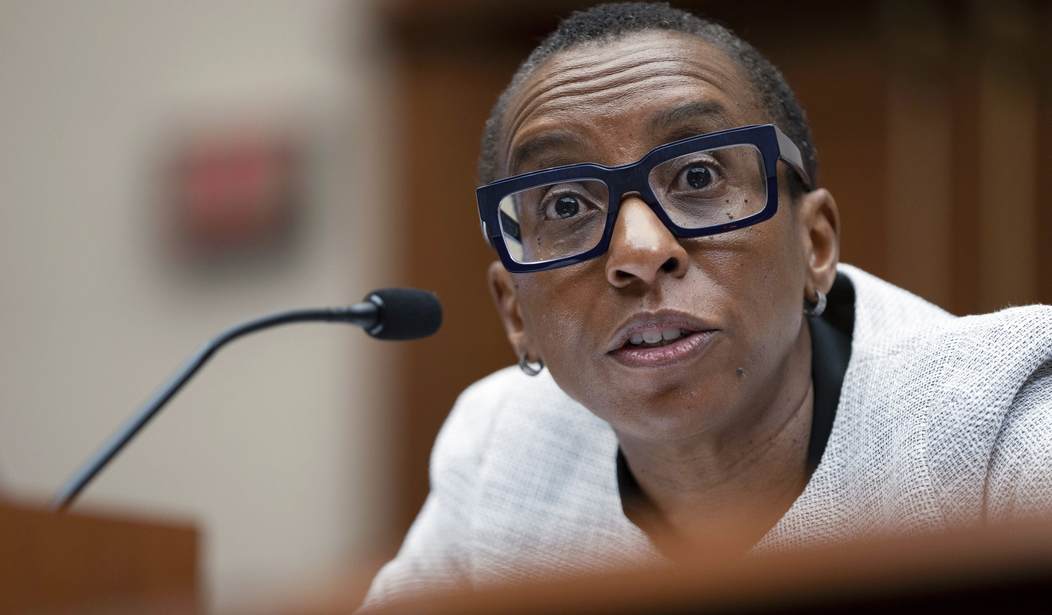Harvard President Claudine Gay may have thought she was through the worst of the storm brought about by her disastrous testimony before House lawmakers in a hearing on antisemitic incidents on campuses and amid allegations of plagiarism in her scholarly work, but a new complaint is again casting doubt on her ability to continue leading the formerly great institution of higher education after Harvard Corporation released a statement standing by its embattled lead.
As it turns out, the previous claims of plagiarism by Gay may have been just the tip of the iceberg, and a new complaint received on Tuesday alleges a total of more than 40 cases of plagiarism in publications comprising "almost half of her scholarly output."
Our friends over at the Washington Free Beacon reviewed and independently verified the new complaint against President Gay, as well as the identity of the person who lodged the new allegations: "a professor at another university...who requested anonymity for fear of retaliation."
More from WFB's Aaron Sibarium:
The new allegations, which were submitted to Harvard's research integrity officer, Stacey Springs, include the examples reported by the Washington Free Beacon and other outlets, as well as dozens of additional cases in which Gay quoted or paraphrased authors without proper attribution, according to a copy of the complaint reviewed by the Free Beacon. They range from missing quotation marks around a few phrases or sentences to entire paragraphs lifted verbatim.
The full list of examples spans seven of Gay's publications—two more than previously reported—which comprise almost half of her scholarly output. Though the Harvard Corporation said earlier this month that it initiated an independent review Gay's work in October and found "no violation of Harvard's standards for research misconduct," that probe focused on just three papers.
"[I]t is impossible that your office has already reviewed the entirety of these materials," the complaint reads, "as many … have not been previously reported or submitted."
All allegations of faculty plagiarism must be reviewed by Harvard's research integrity officer, according to the school's official policies, and if deemed credible are referred for further investigation. A guilty finding can result in a range of consequences—including "suspension," "rank reduction," and "termination of employment."
Recommended
The 37-page complaint can be viewed here and includes some eyebrow-raising allegations that were previously unreported, including one example that appears to show Gay plagiarizing language from someone else's dedication to use in her own dissertation's dedication.
This is really wild. https://t.co/NvAC8sSS0X
— Bari Weiss (@bariweiss) December 19, 2023
Carol Swain, one of the scholars whose work was allegedly plagiarized by Gay and whose work is again referenced in the new complaint, wrote in a Wall Street Journal op-ed after the initial round of allegations came to light that "[t]enure at a top-tier institution normally demands ground-breaking originality; her work displays none."
"Harvard can’t condemn Ms. Gay because she is the product of an elite system that holds minorities of high pedigree to a lower standard," Swain continued. "This harms academia as a whole, and it demeans Americans, of all races, who had to work for everything they earned."

























Join the conversation as a VIP Member